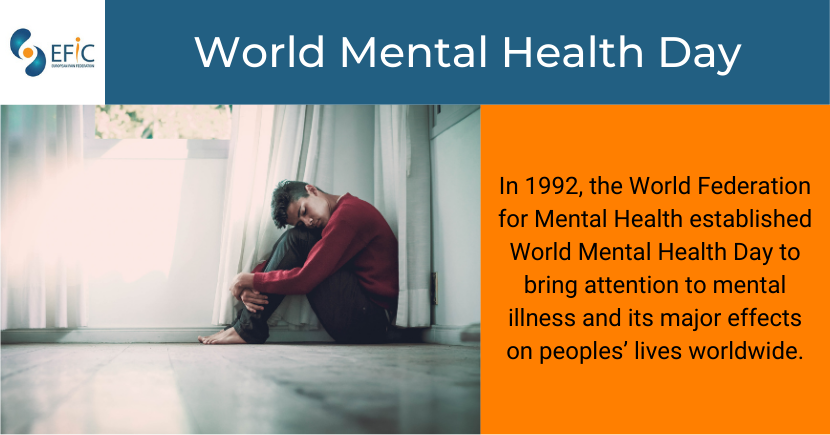About World Mental Health Day
In 1992, the World Federation for Mental Health established World Mental Health Day to bring attention to mental illness and its major effects on peoples’ lives worldwide, through promoting mental health education, awareness and advocacy against stigma.
This year’s World Mental Health Day, on 10 October, comes at a time when all of lives have changed substantially as a result of the COVID-19 pandemic. For individuals with pain, the COVID-19 pandemic has significant potential to worsen pain and disability. Many pain management services including important surgeries have either been cancelled or suspended. The pandemic is causing enormous psychological distress.
Strong evidence shows that stress, depression, anxiety can increase pain intensity, and make people with pain less likely to recover. Further, previous research displays that very stressful situations (e.g. war) increase symptom severity among individuals with chronic pain. A recent survey study in the UK found that individuals with chronic pain reported increases in pain intensity during the most restrictive part of the COVID-19 lockdown. Individuals with chronic pain reported higher levels of anxiety, depression, loneliness and reduced levels of physical activity compared to individuals with no pain. Reduced opportunities for social support have also strong potential to contribute to poor psychological health and impact disability levels.
The European Pain Federation wishes to raise awareness and promote mental health through various projects and activities:
- The correlation between mental health and pain will be prominently featured in the programme for the 12th Congress of the European Pain Federation with its theme “Targeting Pain and its comorbidities in digital age”.
- The European Pain Federation has developed the Core Curriculum for the European Diploma in Pain Psychology. The EDPPsy articulates the learning outcomes to be achieved through self-directed learning, clinical experience, and educational experiences gained through their training and professional lives.
- The Virtual Pain Education Summit presented by the European Pain Federation has a session track dedicated to pain psychology along with interprofessional sessions and topical lectures on current hot topics in pain.
- The EFIC COVID-19 Task Force distributes new research to doctors, physiotherapists, psychologists and nurses looking for advice regarding pain treatment of their patients.
For more information and to access the comprehensive well-being resources relating to World Mental Health Day, visit the WHO campaign here.
